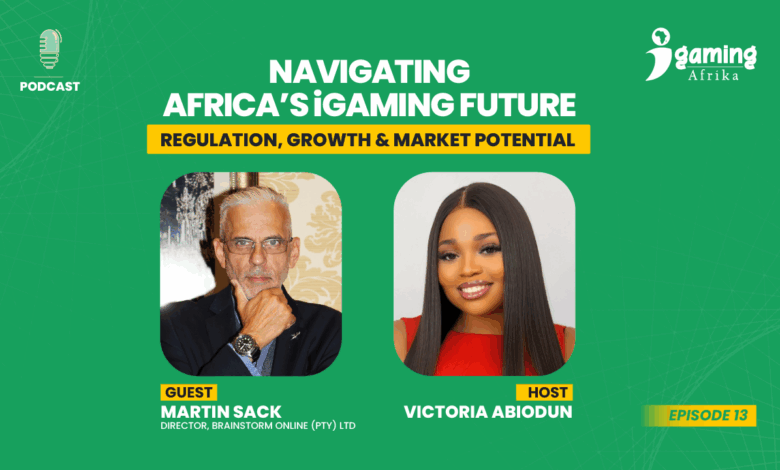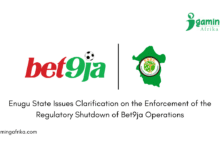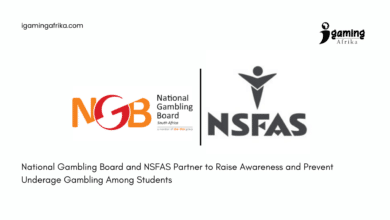
The African iGaming industry is in a defining moment, one powered by digital adoption, a young, tech-savvy population, and an entrepreneurial spirit that thrives on innovation. From mobile-first betting platforms to localized casino content and agent-driven distribution models, Africa has rewritten the rules of engagement for global gaming. Over the past decade, mobile money, affordable smartphones, and rising internet penetration have transformed how millions of Africans interact with entertainment and financial services, creating fertile ground for iGaming’s growth. Markets like Nigeria, Kenya, Tanzania, and South Africa have emerged as regional powerhouses, each with distinct player behaviors, regulations, and stages of maturity.
Yet, alongside this growth comes complexity. New tax regimes, evolving regulations, and diverse market realities present both challenges and opportunities. How can operators remain profitable amid shifting tax laws? How can regulators protect players while encouraging innovation and investment? And most importantly, how can Africa build an iGaming ecosystem that reflects its diversity, creativity, and values These are the questions that industry veteran Martin Sack believes must be answered if Africa’s gaming revolution is to be sustained. For Martin, the next chapter of African iGaming will be defined not by expansion alone, but by understanding a balance between regulation and opportunity, global ambition and local insight.
In Episode 13 of the iGaming AFRIKA Podcast, Martin Sack, Founder & Director of Brainstorm Online (Pty) Ltd and Co-Founder & Chief Strategy Officer at Gaming Advisory Partners (GAP), unpacked the nuances shaping Africa’s betting and gaming landscape. A seasoned gaming executive with over 20 years in the iGaming space, Martin has worked across online poker, casinos, and sports betting both locally and internationally and brings in a wealth of insights. From regulation to responsible gaming, localization to education, Martin outlined what must happen for the industry to reach its full potential and why Africa’s future belongs to those who understand its people, not just its numbers.
The conversation began where most industry debates begin, regulation. Across the continent, governments are refining gaming laws to ensure compliance, taxation, and consumer protection. But for Martin (and many operators), the challenge lies in finding balance. “When countries over-regulate,” he warned, “both players and operators lose.”
Citing Zambia’s 10% stake tax, Martin said the move risks backfiring: “That’s unsustainable. From an operator’s point of view, it’s damn near impossible to actually generate a profit at that level.” In Zambia’s case, this concern has already manifested, as major operators including Betway and betPawa temporarily halted operations after the excise duty was enacted under the Customs and Excise Act. The constitutional petition they filed against the tax was dismissed, and the Zambia Revenue Authority defended the levy as a “consumption tax on players.”
Read Also: Constitutional Court Dismisses betPawa’s and Betway’s Bid to Stop Betting Tax Collection
Operators, however, argue that the measure effectively makes regulated play unviable, pushing customers toward offshore platforms where, as Martin put it, they’re “not getting that fair experience.” The situation, he noted, highlights the need for more balanced regulation across African markets, one that protects state revenue without stifling legitimate operators or driving players into the shadow economy. The result of such heavy taxation, he added, is predictable: operators withdraw, regulators lose visibility and revenue, and players turn to unregulated markets. Most operators, Martin emphasized, want to operate within the law, but they need “fair, balanced, regulated” frameworks that encourage compliance rather than punish it.
In contrast, South Africa provides an example of regulatory balance. “If we’re looking at an average across the country of 6% or 6.5% in tax,” Martin said, “that’s not an issue for anybody to pay, from an operator’s perspective or a player’s perspective, it’s fair.” Indeed, South Africa’s gambling industry surged to ZAR 75 billion in gross revenue in 2024–25, with online betting alone up nearly 60%. That fairness, Martin believes, has kept the sector both profitable and compliant, fostering a collaborative relationship between regulators and operators.
Read Also: South Africa’s Gambling Industry Surges to ZAR75 Billion as Lawmakers Sound Alarm Over Black Market
Beyond regulation, Martin believes the next frontier for Africa’s iGaming success lies in open conversation. Miscommunication, he noted, often stands in the way of progress. Regulators and operators, in his view, share common goals, that is, to ensure fairness, protect players, and sustain the industry’s growth. The problem, he argued, isn’t intention but communication. Regulators are increasingly open to dialogue; what’s needed now is more structured, transparent engagement that builds trust and collaboration rather than tension.
For Martin, dialogue must move beyond conference panels and become structured, continuous engagement. When regulators and operators share insights, they can design systems that safeguard consumers while supporting innovation. He commended African regulators already taking this approach engaging directly with experts and studying global best practices to strengthen their oversight.
If regulation and collaboration form the backbone of Africa’s gaming industry, localization is its heartbeat. For global operators eyeing the continent, Martin stressed that Africa cannot be understood from a boardroom in London or Malta. True success, he said, comes only through immersion; walking the streets, visiting betting shops, and understanding local realities. “If you haven’t walked into a sports betting shop… you don’t know enough to put a plan together,” he noted.
When it comes to reaching players, Africa plays by its own rules. “Africa is kind of different,” Martin said. “It’s not just Google Ads.” Across the continent, the gaming conversation unfolds in WhatsApp chats, Telegram groups, and local kiosks — places where trust and community matter more than clicks, and where real connections often outperform algorithms.
He pointed to the agent model, the local representative with “his half-air drum and little POS device” as a distinctly African approach that global companies must learn to respect and integrate. “Employ a good portion of your marketing team in-country,” Martin advised. “It’s very difficult to sit in Stockholm and try to figure out how to market to your average Ugandan or Kenyan. You need people who understand the streets, the language, and the heartbeat of the players.”
Martin views conferences and workshops as “absolutely invaluable” platforms for fostering knowledge exchange and professional development across Africa’s gaming ecosystem. While large-scale events like SiGMA Africa and SBC Summit bring global exposure, he believes the next phase should focus on deeper learning “workshop-level” sessions and masterclasses that equip African professionals with practical technical and regulatory skills.
But for Martin, the impact of iGaming extends far beyond the industry itself. He sees it as a catalyst for socio-economic transformation, a way to nurture skills, build businesses, and create meaningful opportunities. “Gaming can educate youth, create new industries, and give people hope,” he said. “We’re a fresh, young, dynamic continent full of smart people, and it’s about taking that and channeling it.”
He pointed to homegrown success stories such as Betway and Hollywoodbets, brands that have expanded beyond Africa as proof that the continent is not only ready to host global operators but to export innovation and talent. Africa, he argued, has evolved from being seen as an emerging market to becoming a source of global inspiration.
Martin believes Africa’s complexity is also its strength. “Every market here has been forced to innovate out of necessity,” he said. From integrating mobile money to building lightweight apps that run on low bandwidth, African operators have turned constraints into creativity. “Nigerian operators,” he added, “are some of the smartest in the world. The consumer there is demanding, well-educated, and expects excellence.”
In his view, Nigeria’s mix of ambition and intelligence makes it a powerhouse, while Kenya and Tanzania are steadily building regulatory consistency and technical maturity. He also sees untapped potential in emerging markets like Angola and Mozambique, describing them as “markets that are still new but full of opportunity if done right.” For Martin, these nations represent the next wave of Africa’s gaming evolution, markets with growing digital access, youthful populations, and increasing regional investment.
Ultimately, Martin emphasized that Africa’s iGaming success depends on communication, fairness, and education. Regulators and operators, he urged, must “cooperate and provide that safe, wonderful playing experience” for all. He called for more cross-border collaboration, stronger commitment to responsible gaming, and continued investment in learning. “It’s about education,” he said. “The more educated you are, the easier it is to make the right decision.”























